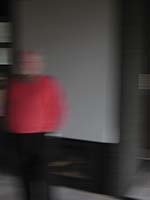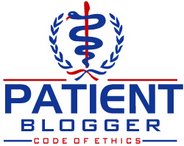 I am generally a pretty laid-back person – at least I like to think of myself that way. I rarely get rattled by stressful situations at work. My modus operandi when I am in a crisis is what I learned when I was a resident: the first thing to do in a code (when a patient has stopped breathing and/or has no heartbeat) is to take your own pulse. The bottom line is that you are of far more use when you are calm than when you are in a panic. So the normal grind does not really bother me – or so I have thought.
I am generally a pretty laid-back person – at least I like to think of myself that way. I rarely get rattled by stressful situations at work. My modus operandi when I am in a crisis is what I learned when I was a resident: the first thing to do in a code (when a patient has stopped breathing and/or has no heartbeat) is to take your own pulse. The bottom line is that you are of far more use when you are calm than when you are in a panic. So the normal grind does not really bother me – or so I have thought. I was going through some personal stresses a few months back and was having some problems sleeping. I try not to bring my personal experiences into work, and had done fairly well at keeping this at bay. My fatigue, however, was starting to build up. When I did sleep, it was not really good sleep and so I woke up with significant fatigue even after an acceptable number of hours of sleep. I found that I was dozing at lunch and at significant pauses in my day and became alarmed.
I came to realize at this point how much pressure I put on myself to think clearly. Since I am primarily a problem-solving physician (I say that the main procedure I do is scratching my head – maybe an explanation for that bald spot), my bread and butter is my thought process. People don’t pay me for my skills with my hands nearly as much as they rely on my problem-solving ability. So any lack of focus is a real problem. I don’t want to give a poor-quality product to any of my patients that come in. Even the relatively simple problems like sinus infections and cough can be a more serious problem lurking just below. It is my job to listen for any aberrations from the typical pattern that may suggest something else going on. I take great pride in my ability to do this. So the thought of having a “bad day” really had me upset. I basically shoved the coffee IV in my arm and slogged through the fatigue as best as I could.
Everyone is entitled to have a bad day at work, but do you want to go to your doctor when he/she is having one? It had never really occurred to me that I have done my best to have the mental discipline to not allow bad days to happen. So was this pressure always there? Doing the inventory of my life, I began to see that I often came home with a lot of fatigue that I could not explain. I often was little use to my wife upon coming home and just dropped on the couch and either watched TV or played on my computer. The main reason for this fatigue, I concluded, was the sustained mental concentration of a typical day. This was often magnified by difficult cases, either emotionally or medically, that I faced on that day.
 So how are we supposed to face this pressure? Is it the inevitable consequence of a job where people’s lives may be in your hands? Is there anything to do to escape from this, or am I condemned to being useless when I come home? Since that day I have been much more conscious about giving myself breaks during the day. This does not mean that I necessarily take more time between patients, but I just put on some music, talk on the phone to my wife, or chat with the staff about something non-medical. Beyond that, I have made my trip home from work one which allows me to mentally recover. I consciously change my mind out of the “work” mode and relax. The work at home does not require the intensity of my job and can actually be relaxing if I let it be.
So how are we supposed to face this pressure? Is it the inevitable consequence of a job where people’s lives may be in your hands? Is there anything to do to escape from this, or am I condemned to being useless when I come home? Since that day I have been much more conscious about giving myself breaks during the day. This does not mean that I necessarily take more time between patients, but I just put on some music, talk on the phone to my wife, or chat with the staff about something non-medical. Beyond that, I have made my trip home from work one which allows me to mentally recover. I consciously change my mind out of the “work” mode and relax. The work at home does not require the intensity of my job and can actually be relaxing if I let it be.
The bottom line is that we need to be more self-aware. It is good t know what your stressors are. I was fooling myself thinking that I did not take work home with me. I was letting my job take big nasty swipes at something much more important: my family. I am grateful for the lesson being learned before it caused too much damage. Maybe my learning this lesson can help other physicians.










